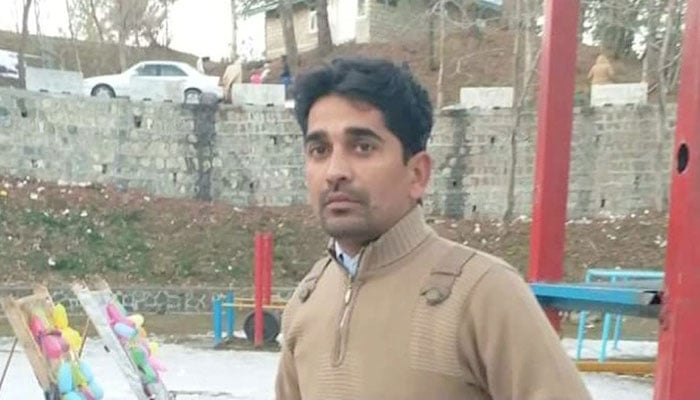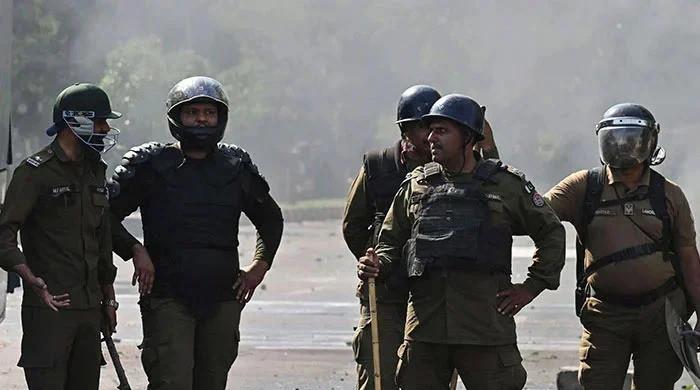College principal killed by student laid to rest in Charsadda
Murder suspect remanded into police custody for three days
January 23, 2018

CHARSADDA: Slain college principal Sareer Ahmed, who was shot dead by his student following an argument over missing classes, was laid to rest in Charsadda on Tuesday.
Faheem Ashraf – a second-year student at New Islamia Public College Shabqadar – opened fire at his principal Sareer Ahmed after the two argued over the student's absence from college to attend the Faizabad sit-in in the federal capital in November, police said on Monday.
The accused was arrested from the crime scene and his weapon seized by the police, which said that investigators were trying to ascertain if the accused had hurled blasphemy allegations against the principal as an excuse for the killing.
SHO Arif Khan told Geo News earlier today that, according to initial investigation, the accused had taken three days’ leave of absence from the college to attend the sit-in in Islamabad.
The protest, which brought the federal capital to a virtual standstill for weeks in November last year, ended in violent clashes between police and demonstrators that injured over 200. It also led the government to back down and accept the resignation of the federal law minister.
According to students and colleagues of the deceased, Sareer Ahmed was a practicing Muslim, a Hafiz-e-Quran, and held a Master’s degree in Islamic Studies from the University of Peshawar.
He has left behind a wife, three daughters, and a son.
Suspect remanded into police custody
A local court on Tuesday handed over the accused, Faheem Ashraf, into police custody on a three-day physical remand.
Private schools in the town remained closed today in mourning, while students and colleagues paid tribute to the slain principal.
Sareer Ahmed was an honest and diligent man and true to his values, the deceased’s acquaintances reminisced.
All the private schools in Charsadda will remain closed for three days in mourning.













